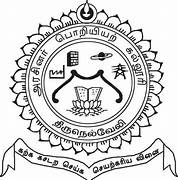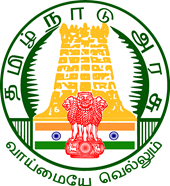
Government College of Engineering
Tirunelveli, Tamil Nadu | Established 1981
Approved by AICTE, New Delhi | Affiliated to Anna University

Tirunelveli, Tamil Nadu | Established 1981
Approved by AICTE, New Delhi | Affiliated to Anna University
Power • Innovation • Sustainability
Established in 1986 - Building skilled professionals driving technological and societal sustainability
Distinguished center of learning, research, and innovation in electrical engineering
To make the department into a distinguished center of learning, research, build skilled professionals who drive technological and societal sustainability.
M.E. Power Electronics and Drives since 2002. Faculty actively engaged in research in Power Electronics, Power Systems, and Distributed Generation. AICTE funded MODROBS project.
Faculty members employ innovative methodologies to ensure attainment of learning objectives
Google Classroom and Microsoft Teams for seamless file sharing, assignment distribution, and interactive online learning experiences.
Faculty-created YouTube channels with comprehensive video lectures making knowledge accessible anytime, anywhere for enhanced learning.
Virtual laboratory environments for theoretical concept understanding with interactive simulations and knowledge testing.
Smart boards, demonstrations, PowerPoint presentations, and educational videos for effective interactive learning.
NPTEL, Coursera, Udemy, NITTT, and IIT Spoken Tutorial access for enhanced educational quality beyond curriculum.
Bridging theory-practice gap through industrial visits, internships, and real-world application of engineering concepts.
Collaborative problem-solving through working model demonstrations and hardware aspect knowledge development.
3D models, animations, case studies, and dismantled equipment for enhanced concept visualization and understanding.
Peer-to-peer learning through student presentations, group discussions, and interactive knowledge sharing sessions.
Student-centered learning with independent study, active participation, and technology-integrated collaborative learning.
Find employment in Core Electrical and Electronics Engineering and service sectors with technical competency.
Get elevated to technical lead positions and lead organizations competitively in the electrical engineering domain.
Enter into higher studies leading to post-graduate and research degrees. Become consultant providing practical solutions.
Become an entrepreneur and be part of Electrical and Electronics product and service industries.
Bridging the gap between theoretical knowledge and practical application
| S.No | Industry | Date | Year | Students Participated |
|---|---|---|---|---|
| 1 | Papanasam Hydro Power Plant | 14.05.2022 | II | 61 |
| 2 | Kudankulam Nuclear Power Plant | 13.06.2022 | II | 61 |
| 3 | Traco Cable Company Limited | 27.02.2023 | III | 50 |
| 4 | Kerala Agro Machinery Corporation Ltd | 28.02.2023 | III | 50 |
| 5 | RENOM Energy Services Pvt Ltd | 13.03.2024 | IV | 66 |
Impart contemporary technologies in Electrical and Electronics Engineering focusing on Power Quality, Green Energy Technologies, and Smart Grid systems.
Prepare students to utilize modern trends in electrical and electronics engineering to solve current and future energy problems effectively.
Prepare students to excel in future careers as eminent professionals and adapt to challenging emerging technologies.
Established in 1984 - Fostering technical excellence and professional development
Regular interaction with experts from prestigious organizations:
Engineering Graduates will be able to:
Apply knowledge of mathematics, science, and engineering fundamentals to solve complex problems.
Identify, formulate, and analyze complex engineering problems using first principles.
Design solutions with consideration for public health, safety, and environmental factors.
Use research-based knowledge and methods including design experiments and data analysis.
Select and apply appropriate techniques and modern engineering IT tools.
Assess societal, health, safety, legal, and cultural issues in engineering practice.
Understand impact of engineering solutions and demonstrate sustainable development knowledge.
Apply ethical principles and commit to professional ethics in engineering practice.
Function effectively as individual and team member/leader in diverse settings.
Communicate effectively on complex engineering activities with community and society.
Apply engineering and management principles in multidisciplinary environments.
Engage in independent and life-long learning in the context of technological change.
Government College of Engineering
Tirunelveli - 627007
Tamil Nadu, India
Phone: +91-462-2553143
Fax: +91-462-2552663
Office Hours: 9:00 AM - 5:00 PM
principal@gcetly.ac.in
eee@gcetly.ac.in
admissions@gcetly.ac.in